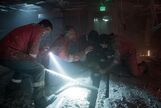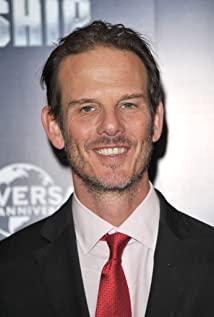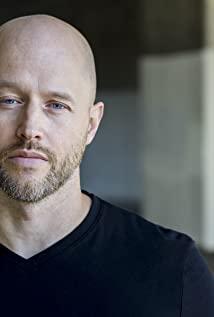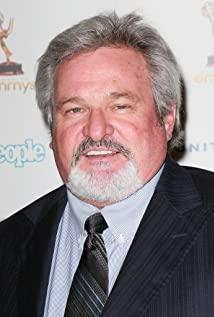All dedication and sacrifice will be remembered
There is a plot in the movie that after the explosion and fire of the Deep Sea Horizon, most of the staff fled to the outer platform and were waiting for a lifeboat, and suddenly found that the crane was swinging back and forth over the head due to the explosion and hitting other surrounding equipment, continuous high-altitude falling objects. Endanger the lives of all personnel on the platform. At this time, the crane driver risked his life to climb up the tower and returned to the cab to control the crane reset, which relieved the crisis on the platform. But unfortunately, as the explosion continued, he sacrificed himself. He bought precious time with his life in exchange for the safety of others on the platform.
If the driver does not return to the cab, the probability that he will die with the others is 50%, if the driver returns to the cab, the probability of his own death is 90%, and the probability of others dying is 10% (specific probability It is not calculated accurately, but is used to describe the critical degree of the situation felt by individuals when watching the movie, with subjective feelings). So does the driver want to go back to the cab? I put myself in my shoes and thought about my choice for the first time, I would go back, and then I seriously thought about why I made this choice, but I couldn't think of a specific reason for a while, which can probably be attributed to my education and life experience Makes me feel that this is a correct and inevitable choice. So do you think everyone should choose to go back? If most people feel that going back is the right choice, should those who choose not to go back be blamed?
This problem is somewhat similar to the train problem, where there are two tracks in front of a running train, one with 5 people and the other with 1 person. If you don't turn the switch, the train will rush to 5 people, should you turn the switch and trade the life of 1 person on the other road for the lives of 5 people? The train problem is mainly used to criticize utilitarianism in ethical philosophy. The utilitarian view is that the best behavior is to bring the greatest happiness to the greatest number of people. According to this theory, we should turn the switch and give up 1 person to save the 5 people. But critics argue that once the switch is turned, you become an accomplice in an unethical act—you are partly responsible for the death of the lone person on the other track.
Then... what if the person to be sacrificed is yourself? The difference here is that the right to choose the switch is given to the person on the other road, so that the two identities of the switch and the sacrificer are combined into one. So even if the switch is turned, the immoral behavior of the critics is not true, because the person sacrificed his own life, and we usually think that when a person sacrifices himself, it is not an immoral behavior. Following this reasoning, in this case, from an ethical point of view, is turning the switch the only option? So is it a violation of ethics not to turn the switch at this time?
Back to our topic itself, as a driver, is going back to the cab the only option? If someone chooses not to go back at this time, are those who choose not to go against ethics?
We occasionally encounter such scenarios in our life. For example, you have just booked a flight ticket and hotel to travel to the Maldives during a holiday, and you plan to travel with your family. Suddenly, there is an emergency that only you can solve. If you don’t go back, the project will be blocked. Damn, everyone in the team has lost their bonuses this month. If you go, your girlfriend will break up with you. To go or not to go? Many people will choose to go back.
Just now we have been discussing how to choose ourselves as the client, the crane driver. Now let's try to reconsider this issue from a different angle. What if I am a bystander? Assuming that the driver did not choose to sacrifice himself to save others, from a utilitarian perspective, he did not bring the greatest happiness to the greatest number of people, but from another perspective, he chose to save his own life. From the perspective of a bystander, can we think that it is immoral for a person to choose to protect himself in this situation? I don't think so, because this is his own life, and the bystander has no right to decide the life and death of others. On the contrary, it is an immoral behavior for you to ask the client to sacrifice himself to save others as the only choice.
To sum up, we discussed the issue of whether a crane driver should sacrifice himself to save others from the perspective of ethics. When we were the parties, we concluded that going back was the only option, and from an ethical point of view we found no reason not to go back. But when we are bystanders, we believe that it is unethical to ask the client to sacrifice himself to save others as the only option, that is, the client can choose not to go back.
Why come to different conclusions? Because each of us is an independent individual, we do not exist for the needs of others, because each of us is an independent life worthy of respect. We have the right to choose freely, and we respect the right of others to do so. So, we can choose to sacrifice our own life, but we cannot demand the life and death of others. As a kind of applied ethics, engineering ethics is a discipline that systematically thinks and studies the "right" and "wrong" behaviors of engineering and technical personnel. One of the tasks of engineering ethics is to cultivate and train one's ability to distinguish right from wrong.
Even if the crane driver chooses to save his life as much as possible, the motive for his behavior is valid. Because morality is autonomous and self-disciplined behavior, moral value is not determined by results, nor is it determined by the consequences of actions. The moral value of actions depends on the motives of things. The important thing is that people do the right thing for the right reason .
If, as a crane driver, we choose to go back, I think we are pursuing a deeper level of happiness. Mueller's "Paradox of Happiness" states that self-interest tends to narrow our interests and sever our connection to reporting relationships. Most of life's deepest satisfactions—either at work or in relationships—come from establishing obligations to others and to activities.
Mencius said: "Life is what I want; righteousness is what I want; the two cannot be combined, and it is the one who sacrifices life for righteousness."
Marx and Engels once clearly pointed out: "Communism neither uses egoism to oppose self-sacrifice, nor self-sacrifice to oppose egoism." Morality is a balance of interests. Individuals decide whether to do some deeds to contribute to society. Collective It is also possible to advocate the spirit of individual dedication and sacrifice for the collective interests, but only in "advocacy", and cannot "force individuals to make self-sacrifice against their will to obey the collective interests".
View more about Deepwater Horizon reviews











